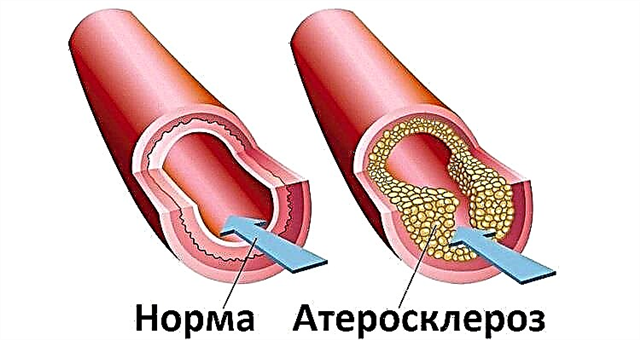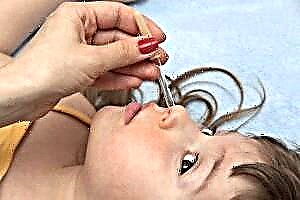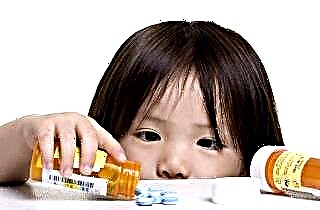It is not always necessary to treat a child's cough. In babies under 2 years of age, it often has physiological causes. Babies cough in the morning, clearing the throat and nose of mucus that has accumulated overnight. The baby also periodically coughs during active teething - he simply does not have time to swallow a huge amount of constantly flowing saliva. But if the cough is caused by a cold, viral or bacterial infection, cough syrup for children from 1 year old will be an excellent assistant in its treatment.
Causes of baby cough
 It is not always possible to quickly understand the causes of cough in children under one year old even with an experienced pediatrician. In 90% of cases, children's cough is directly associated with respiratory diseases, acute or chronic, with an infectious or non-infectious nature. But other external or internal factors can also provoke a cough:
It is not always possible to quickly understand the causes of cough in children under one year old even with an experienced pediatrician. In 90% of cases, children's cough is directly associated with respiratory diseases, acute or chronic, with an infectious or non-infectious nature. But other external or internal factors can also provoke a cough:
- allergic reactions - are in second place among the most common causes of infant cough, accompanied by swelling and profuse mucus;
- low air humidity - leads to drying out of the mucous membranes and the formation of crusts in the nose, which the child tries to get rid of with a cough;
- exposure to external irritants - dust, gases, strong odors, tobacco smoke (including old ones) irritate the child's delicate mucous membranes and provoke bouts of dry cough;
- ingress of a foreign body - causes a sudden attack of severe coughing, often accompanied by suffocation;
- reflux disease - a dry cough mainly appears at night or after eating, when the contents from the stomach enter the esophagus;
- heart failure - accompanied by a lack of oxygen, which the body tries to replenish by expanding the lumen of the bronchi with a cough.
Diagnosis of young children is complicated by the fact that the baby can only signal a malfunction in the body by crying. He cannot show where he hurts and even more so explain how.
Therefore, if the causes of the cough are not obvious: there are no signs of a respiratory disease, the room has a normal microclimate and there are no substances irritating the respiratory organs, a diagnostic examination has to be carried out.
An examination with analyzes is also necessary when the doctor suspects the infectious nature of the disease. The immunity of a small child is much weaker than that of an adult and he cannot cope with serious infections on his own. Therefore, only cough syrups for children will not help here, most likely, a course of antibiotics or antiviral drugs will be prescribed.
Benefits of syrups
Cough syrup for children from one to 3 and even 6 years old is the most convenient form of medicine. Some mothers prefer to give their child a pill - it's faster and cheaper. But syrups have a number of undeniable benefits:
 Baby syrups taste good and babies enjoy drinking them.
Baby syrups taste good and babies enjoy drinking them.- Most syrups can be dissolved in water, milk, soup and given during feeding.
- The set includes measuring instruments: a syringe or a spoon, so it will be difficult to make a mistake with the dosage.
- The effect of syrups on the body is mild, some create a protective film on the mucous membrane.
- The syrup does not irritate the gastric mucosa, it has a targeted local effect.
The sweet taste of the syrup does not mean that there is a lot of sugar - sweeteners are often used and the medicine can be given even to children with diabetes. The sugar content is always indicated on the packaging.
The basis for modern syrups is herbal extracts; one product can contain more than 10-15 components. This greatly enhances the healing power of the drug, but at the same time increases the risk of an allergic reaction to any of the plants. Therefore, the first time to give a child multicomponent drugs should be done with caution.
Views
All cough drugs are divided into several groups according to their action. This is important to know, since their mechanism of action is significantly different. When prescribing a medicine, not only the cause, but also the type of cough is taken into account. Choosing a drug in the wrong group can only increase the seizures.
Therefore, when you are unsure of your knowledge, do not buy cough syrup for your child yourself - trust your doctor or pharmacist.
- Antitussives. Drugs, the action of which is aimed at suppressing the cough reflex. They act directly on a part of the brain, slowing down its activity. It is not safe to give such funds to babies - in the developing brain there are very small distances between different centers and inhibition can spread further, causing apathy, drowsiness, and loss of appetite. In addition, the use of antitussives is really justified only in two cases: with whooping cough, when the cough occurs precisely because of irritation of the nerve endings of the larynx, and with oncology, when it is provoked by the growth of neoplasms. In all other cases, it is necessary to use means to soften the cough, not suppress it.
 Mucolytics. This group of drugs is designed to liquefy thick sputum that settles on the walls of the trachea or bronchi and coughed poorly. The funds are usually used in the treatment of inflammatory processes and relief of the condition in diseases of the lower respiratory tract: bronchitis, pneumonia. In mucolytic syrups, additional components are often present that dilate the bronchi, making it easier to cough up mucus. Over time, mucolytics can be replaced by expectorant drugs.
Mucolytics. This group of drugs is designed to liquefy thick sputum that settles on the walls of the trachea or bronchi and coughed poorly. The funds are usually used in the treatment of inflammatory processes and relief of the condition in diseases of the lower respiratory tract: bronchitis, pneumonia. In mucolytic syrups, additional components are often present that dilate the bronchi, making it easier to cough up mucus. Over time, mucolytics can be replaced by expectorant drugs.- Expectorants. The action of syrups of this group is aimed at enhancing mucus secretion and increasing the activity of the ciliated epithelium of the bronchi. They are prescribed with an abundant amount of liquid mucus in order to prevent its stagnation in the respiratory organs and remove it outside as soon as possible. Drugs in no case are used simultaneously with antitussives. They are prescribed for the treatment of wet coughs, accelerate the healing process and serve as the prevention of residual effects.
- Combined. They are the ones who are able to gently translate a dry cough, which doctors call unproductive due to the fact that mucus does not leave during it, into a productive one. The drug gently suppresses the cough reflex, thus preventing an attack and reduces the viscosity of sputum, facilitating the process of its excretion. Most of the drugs in this group have a weak sedative effect and promote rapid falling asleep, so it is better to give the drug to the child before bedtime.
Which group the prescribed or chosen medicine belongs to is always indicated on the package and in the instructions, which must be strictly followed. Even if the cough remedy is completely natural, overdose can cause multiple side effects - from an allergic reaction to severe diarrhea.
Therefore, you need to treat children's cough syrups in the same way as all other medicines - carefully and carefully.
The best drugs
 The selection of toddler cough syrups is large enough to help you find the best medicine for your child for medical reasons and taste preferences. Some mothers categorically require the doctor to prescribe an all-natural syrup. This behavior is unacceptable. In some cases, the presence of additional components is necessary, since the strength of the plant extracts is not enough for an effective effect.
The selection of toddler cough syrups is large enough to help you find the best medicine for your child for medical reasons and taste preferences. Some mothers categorically require the doctor to prescribe an all-natural syrup. This behavior is unacceptable. In some cases, the presence of additional components is necessary, since the strength of the plant extracts is not enough for an effective effect.
Here is a list of the most popular cough syrups recommended by pediatricians for the treatment of children from one year old:
- "Lazolvan". An expectorant drug based on ambroxol, which can even be given to babies.It is prescribed for thinning thick, poorly flowing mucus in case of bronchitis, pneumonia, bronchial asthma. Virtually no contraindications.
- "Herbion". The manufacturer made sure that the medicine is suitable for any child, and has released two drugs: for dry and wet cough. Both syrups are prepared on the basis of plant extracts: from plantain and primrose. They act gently, but effectively, while at the same time providing a pronounced anti-inflammatory effect.
- "Alteika". One of the most effective and safe expectorant drugs, which is available in the form of a syrup or mixture. The mixture does not contain sugar, therefore it is suitable for diabetics. Does not irritate the gastric mucosa, reduces the secretion of gastric juice. It dilutes phlegm well and significantly increases its amount.
 "Prospan". A popular and effective remedy based on common ivy extract. Pronounced mucolytic effect, promotes the rapid discharge of sputum, reducing the attacks of unproductive cough.
"Prospan". A popular and effective remedy based on common ivy extract. Pronounced mucolytic effect, promotes the rapid discharge of sputum, reducing the attacks of unproductive cough.- Jocet. Combined drug with a strong antitussive effect. It is used at those stages of the disease when little sputum is released, and the child is tormented by bouts of unproductive barking cough. Expands the bronchi, facilitates breathing, stimulates the formation of phlegm. Do not use without a doctor's prescription!
These are only the TOP-5 of the most popular drugs that are used most often for prescriptions. But, when choosing a medicine, study in detail its composition, contraindications and possible side effects.
Do not be afraid to ask the pharmacist questions, and if the drug does not suit you in some way, ask what other drugs from this group are. Perhaps you will be offered a more suitable substitute with a similar effect on the body.
Home alternative
Traditional medicine recipes, proven over the years, can become a home alternative to pharmacy cough syrups:
- black radish juice with honey;
- warm milk with soda;
- fig or onion milk;
- freshly squeezed beet and cabbage juice;
- diluted with water tincture of propolis;
- badger fat.
Warm drink relieves coughing fits well. And if you use decoctions of expectorant herbs for these purposes: coltsfoot, oregano, sage, thyme, elecampane, the effect will increase many times over.
To reduce inflammation and quickly relieve the baby from a sore throat, and at the same time toxins accumulated in the body, it is useful to give him tea made from chamomile, linden, rose hips.
 An excellent therapeutic effect is provided by steam inhalations with a solution of soda, decoctions of medicinal herbs or solutions of essential oils. Babies cannot do them, and after a year, this method of treatment is already suitable for the child and quickly relieves the condition. After the procedure, even in summer, you cannot immediately go outside. It is advisable that the baby does not speak for at least half an hour. You can read a fairy tale to him or draw with him.
An excellent therapeutic effect is provided by steam inhalations with a solution of soda, decoctions of medicinal herbs or solutions of essential oils. Babies cannot do them, and after a year, this method of treatment is already suitable for the child and quickly relieves the condition. After the procedure, even in summer, you cannot immediately go outside. It is advisable that the baby does not speak for at least half an hour. You can read a fairy tale to him or draw with him.
The advantage of treatment with folk methods is that they are not only a medicine, but also an excellent tool for strengthening immunity and preventing new respiratory diseases. But they cannot cope with serious infections.
Therefore, if you notice a sharp deterioration in the child's condition: the cough has intensified, the temperature has risen, pus or blood in the sputum appears - see a doctor immediately! In this case, serious treatment with antibiotics or other potent drugs is necessary.

 Baby syrups taste good and babies enjoy drinking them.
Baby syrups taste good and babies enjoy drinking them. Mucolytics. This group of drugs is designed to liquefy thick sputum that settles on the walls of the trachea or bronchi and coughed poorly. The funds are usually used in the treatment of inflammatory processes and relief of the condition in diseases of the lower respiratory tract: bronchitis, pneumonia. In mucolytic syrups, additional components are often present that dilate the bronchi, making it easier to cough up mucus. Over time, mucolytics can be replaced by expectorant drugs.
Mucolytics. This group of drugs is designed to liquefy thick sputum that settles on the walls of the trachea or bronchi and coughed poorly. The funds are usually used in the treatment of inflammatory processes and relief of the condition in diseases of the lower respiratory tract: bronchitis, pneumonia. In mucolytic syrups, additional components are often present that dilate the bronchi, making it easier to cough up mucus. Over time, mucolytics can be replaced by expectorant drugs. "Prospan". A popular and effective remedy based on common ivy extract. Pronounced mucolytic effect, promotes the rapid discharge of sputum, reducing the attacks of unproductive cough.
"Prospan". A popular and effective remedy based on common ivy extract. Pronounced mucolytic effect, promotes the rapid discharge of sputum, reducing the attacks of unproductive cough.

